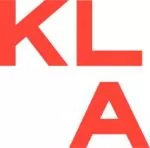ESTABLISHING A BUSINESS ENTITY IN BRAZIL
The two most common forms of legal entities incorporated in Brazil are the limited liability company ("Limitada") and the corporation ("S.A."). These are considered the most attractive types of companies given that they are the only entity types which both have the following advantages in common: (i) the liability of the equity holders is generally limited to their equity interest (subject to certain specificities described below); (ii) either can be utilized for any type of business activity (e.g. services, industry, commerce etc.); and (iii) generally speaking, neither has any minimum capital requirements (and when required, is by virtue of their activities carried out and not associated with their particular corporate type).
1. Recent updates to Brazilian Corporate Laws.
In recent years, Brazilian corporate laws have undergone several changes with the aim to improve and modernize the country´s business environment.2
Some of the notable changes are the following innovations:
- a Limitada can now be held by only one partner (individual or legal entity);
- digital and remote general meetings for both Limitada and S.A. are now governed by express legal provisions;
- introduction of plural vote for S.A.;
- non-residents may now be elected as officers/managers, provided they are represented by a Brazilian resident for the purpose of receiving service of process;
- no more need to include a Limitada's main activity in its name;
- possibility to appoint only one officer in a S.A. (similarly to a Limitada);
- replacement of corporate books by electronic corporate books;
- possibility to issue preferred quotas in Limitadas, without voting rights (although this matter is still under academic debate); and
- extinction of the corporate type known as "Eireli", a type of Limitada with one sole partner that became obsolete since all Limitadas are now allowed to be held by only one partner.
2. Limitada x S.A.: Summary of the most relevant characteristics and the basic differences.
The Limitada is governed by the provisions of the Brazilian Civil Code, law 10,406/02 (the "Civil Code"), as amended, and the S.A. is governed by the Corporation Law, law 6,404/76 (the "Corporation Law"), as amended. The Articles of Association of a Limitada may state that the company is subsidiarily governed by the Corporation Law, in which case the latter will apply whenever the Civil Code is silent on any aspect.
A S.A. may be either publicly or closely held. A publicly held S.A. must be registered with the Brazilian Securities and Exchange Commission ("CVM") for purposes of having its stocks traded in the Stock Exchange. A closely held S.A., as the name suggests, is a private entity, which does not issue shares to the public. For purposes of this article, only the characteristics of a closely held S.A. are to be considered.
Since the S.A. was conceived to be the type of entity aimed at more substantial ventures, it is subject to more rigorous regulation. Given its nature, the S.A. is less adaptable and suitable to customization and tend to be too bureaucratic in some instances. However, it is important to acknowledge that the Startup's Legal Framework has reduced some of the burden and bureaucracy for closely held corporations with gross revenue of up to BRL 78,000,000.00, such as the requirement for publication of corporate acts.
By contrast, the principal strength of a Limitada lies in its flexibility and customization characteristics being subject to less regulation and bureaucracy compared to the S.A. It follows that the Limitada is by far the most popular type of corporate entity in Brazil. There are currently more than 4 million active Limitadas compared to the less than 200,000 active S.A. What makes this difference even more remarkable is that this number does not take into account the 1 million Eirelis that will be converted into Limitadas pursuant to the recent enactment of the Law of Business Environment3.
The tables below delineate and compare the most relevant characteristics and the basic differences between a Limitada and a S.A.
Footnotes
2 Within this framework, Law 13,874 enacted on September 20, 2019 ("Law of Economic Freedom"), Law 14,030 enacted on June 28, 2020, Supplementary Law 182 enacted on June 1, 2021 ("Startup's Legal Framework"), Law 14,195 enacted on August 26, 2021 ("Law of Business Environment") along with some regulatory changes were put into operation by the Brazilian National Department of Companies' Registration and Integration through its regulations ("DREI").
3 Information available on DREI's website: https://www.gov.br/governodigital/pt-br/mapa-de empresas/painel-mapa-de-empresas
To read the full article click here
Originally Published by International Lawyers Network
The content of this article is intended to provide a general guide to the subject matter. Specialist advice should be sought about your specific circumstances.



